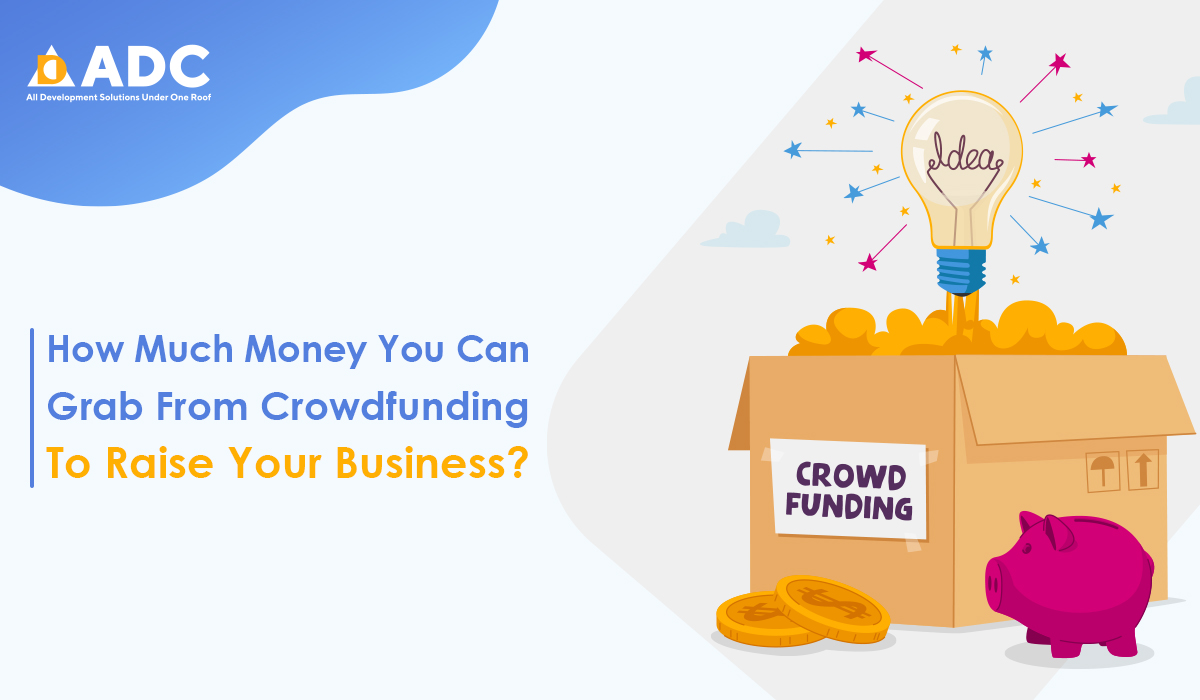Recent post
Subscribe to the Blog
Get our research-based blogs and stories delivered to your inbox.

Have you come up with an excellent idea that can contribute to the growth of your business? You probably just need a cash-jab to get there. Well, there are several options at your disposal. For instance, you can get in touch with your friends or family members. After all, they probably have a little bit of cash lying somewhere around their house that they are willing to invest in something worthwhile. Just imagine for a second that you’ve already been there and done that. What will you do next? Will you try to acquire a business loan from your bank? What if none of those financial institutions feel interested? What if the Angel investors you approached ignore you? If nothing else works, you should give crowdfunding a try. Most business owners don’t think about it, unfortunately, but that will change sooner rather than later.
So, what’s the deal with crowdfunding? What’s it about? The concept is quite a simple one, actually: you offer an idea that everyone would enjoy supporting by contributing a specific sum of money. The more people you can appeal to, the more money you’ll raise. You should thank the internet because if you have the perfect product or an incredible project, you can launch your campaign through a crowdfunding program. With a little bit of promotion done intelligently, you will bring your idea in front of hundreds and thousands of folks. Some of these people may also be willing to support you with money. Crowdfunding is very popular among the owners of start-ups and entrepreneurs, but many established businesspeople are using it to expand their small businesses. There’s a crowdfunding platform called Kickstarter. This site alone managed to help people like you in raising more than $340 million, which they pledged and invested successfully in various projects.
Backers are available for a massive variety of projects, products, or campaigns. It may sound a bit too good to be true, but the internet is full of individuals willing to support new products and concepts. These people also help small businesses grow and thrive. Rest assured, if you can be immensely creative, you’ll get lots of possibilities. Here are the most common crowdfunding strategies you can use to grow your small business.
As already mentioned earlier, donors are simply waiting for you and others like you to approach them with unique ideas. Just keep the following consideration in mind while exploring your options.
You will be wise to think about the demographic of your target backer. Crowdfunding isn’t everyone’s cup of tea. Usually, millennials are the most significant backers of crowdfunded projects. Your request should sound appealing to the target audience, but you also have to be sure that your target audience is in favour of crowdfunding in the first place.
Just like any other transaction, your donors expect you to offer something valuable in return for their support. There are two reasons why crowdfunding is effective.
Crowdfunding is of four types, and each variant has its own group of donors. Also, each type of crowdfunding technique has a unique set of norms. Furthermore, each has something different to offer to small businesses.
This particular crowdfunding format rewards backers for their investment. For instance, if they are supporting a prototype product, donors at specific levels can get early access to buy it at a discount. Or, they will have the bragging rights to acquire the product before their friends. With reward-based crowdfunding, you can get anywhere between $5,000 and $50,000.
This one is an excellent way to secure loans because it offers a significantly low-interest rate and flexibility in the associated terms. In this type of crowdfunding, investors seek equity in the business they’re investing in. The process is somewhat similar to another crowdfunding strategy, but subtly different too. Debt-based crowdfunding can give you flexible loans of up to $1 million.
This crowdfunding variant is somewhat similar to the one described above. It will offer the backer an equity stake in the business. It also has the power to stand tough against traditional venture capital. However, you must have a thorough understanding of the rules of equity-based crowdfunding before you go for it. You should consider relying on a financial consultant to discuss the matter. Equity-based crowdfunding can help you raise anywhere between $50,000 and $150,000.
This one is for registered non-profit organizations. If you own one such firm, you can use crowdfunding to raise donations. Charitable agencies offering shelter to the homeless, for instance, can raise funds to enhance their kitchen facility. In terms of rewards, you may offer a tax-exemption for the donations. It also has that feel-good appeal that comes with helping non-profit organizations succeed. With donation-based crowdfunding campaigns, you can get somewhere between $1,000 and $10,000.
Regardless of the type of crowdfunding tactic you choose, you should know one thing – the campaign’s success depends entirely on how efficiently you promote it. Both investors and donors wish to be part of a good story. You have to tell that story through content pieces posted on your project page, such as a video, and increase your outreach via social media, blog, email, and every other platform available to you. These considerations tend to be one of the most overlooked components in crowdfunding for business purposes. Entrepreneurs often think crowdfunding money is easy to acquire. Once their project doesn’t enough or any funding, they feel baffled. You shouldn’t make the same mistake. You must convince folks to part with their money without guaranteeing that they will get it back in the form of a reward or repayment. Crowdfunding can be a superb resource only if you put the effort into informing everyone about the campaign.
Get our research-based blogs and stories delivered to your inbox.
 Top Mobile App Development Firms
Top Mobile App Development Firms
 Top Web Development Firms
Top Web Development Firms
 Top On Demand App Developers Firms
Top On Demand App Developers Firms